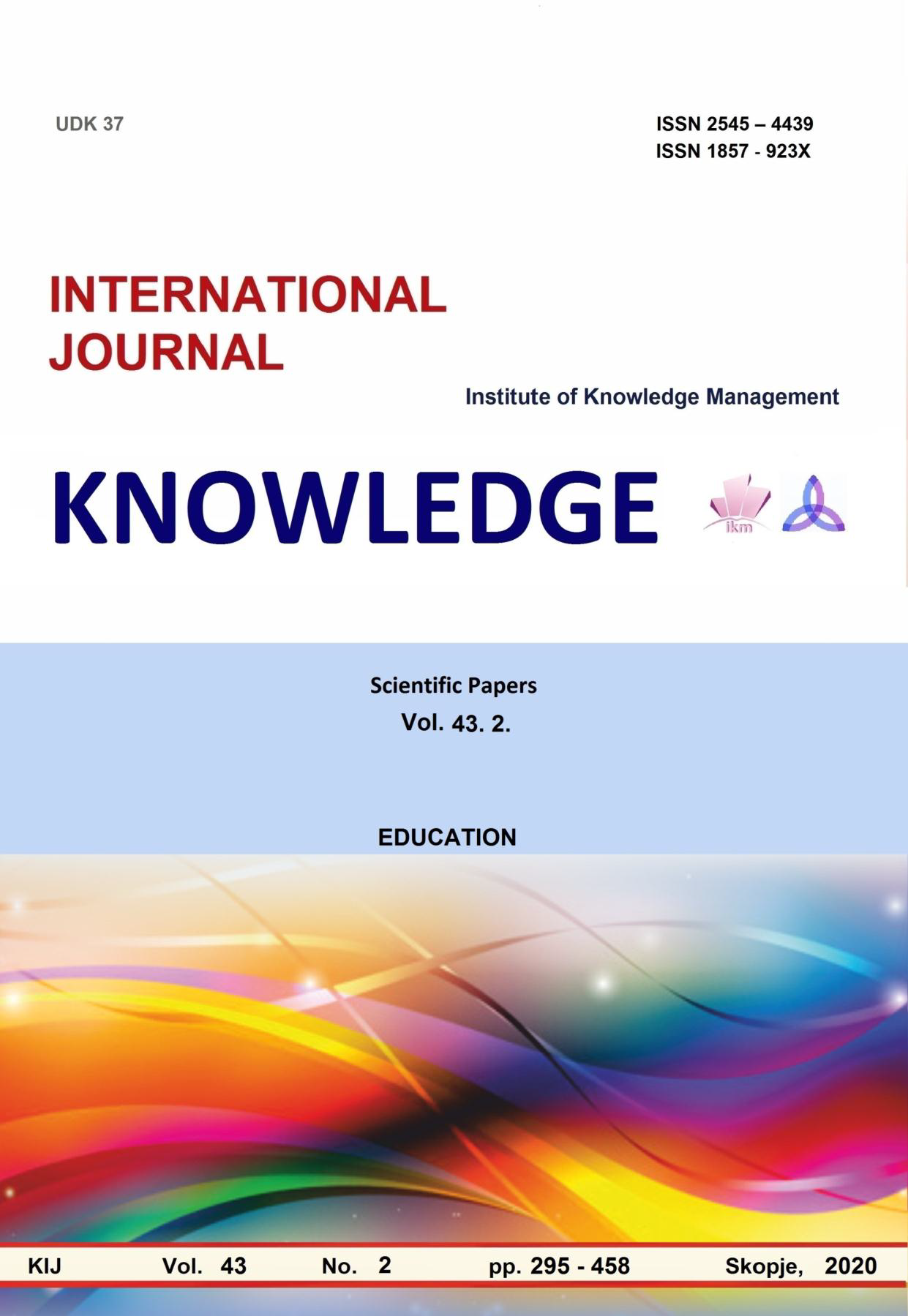ONLINE LEARNING AND STUDENT'S MOTIVATION TO INCREASE SELF-EFFICACY
ONLINE LEARNING AND STUDENT'S MOTIVATION TO INCREASE SELF-EFFICACY
Author(s): Marsela Shehu, Elvira DodeSubject(s): Education
Published by: Scientific Institute of Management and Knowledge
Keywords: motivation; online learning; self-efficacy; students
Summary/Abstract: The whole world for almost 10 months is facing an aggravated pandemic situation, which requires taking restrictive measures for prevention and anti-COVID protection. Even in education, as one of the important sectors of the life of every individual took measures regarding the way of acquiring knowledge. In this context, online teaching has been selected as a form of teaching by higher education institutions. As a new way of teaching and learning, the most efficient cooperation is required between teachers and students, increasing the level of motivation. The aim of study is to identify the level of expectations for success and self-efficacy of students during the teaching process through online learning. The subjects of study include students of the University of Sports Tirana at Bachelor degree on third year of study and Professional Master “Teacher in Physical and Health Education in Pre-University Education” and the Faculty of Education Elbasan at Bachelor degree on the second year and Master of Science. The selected sample is selective and intentional and the standardized questionnaire was used as a measuring instrument such as “Motivated Strategies for Learning Questionnaire” (MSLQ) (Pintrich, Paul R, et.al) where items were selected that contained rating scales of two aspects, expectation for success and self-efficacy. The administration of this questionnaire was carried out in the format docs.google.com, due to the pandemic situation where we currently are and the study data were obtained through this descriptive methodology. According to the authors, expectancy for success refers to performance expectations, and relates specifically to task performance. Self-efficacy is a self-appraisal of one's ability to master a task. Self-efficacy includes judgments about one's ability to accomplish a task as well as one's confidence in one's skills to perform that task. From the data obtained, the subjects believe that they will receive a positive grade in the current courses that are being developed in the first semester, through the unified platform from all higher education institutions, Microsoft Teams. Students claim that the basic concepts, skills, habits as well as the tasks according to the subject programs will be achieved by adapting to the Microsoft Teams platform. A significant psychological element is the concern of students when performing a test on the online platform Microsoft Teams, as well as a satisfaction and success from them when they correctly perform the task. The subjects claim that, to be precise in submitting tasks on this online platform, they cooperate closely and continuously with each other. Given attention to the unusual situation we are experiencing, the students were asked about the close cooperation between the lecturer and the student, who are convinced that they will achieve the desired results in this academic year. In conclusion, we can say that, based on the unusual situation in which we find ourselves, it is necessary to have a lecturer-student cooperation in facilitating the online learning process and not only. It is recommended that all actors, academic, administrative staff, heads of higher education institutions, etc., to be involved in this process, above all with humanity, in order to facilitate and support the psycho-social support of students.
Journal: Knowledge - International Journal
- Issue Year: 43/2020
- Issue No: 2
- Page Range: 317 - 321
- Page Count: 5
- Language: English

